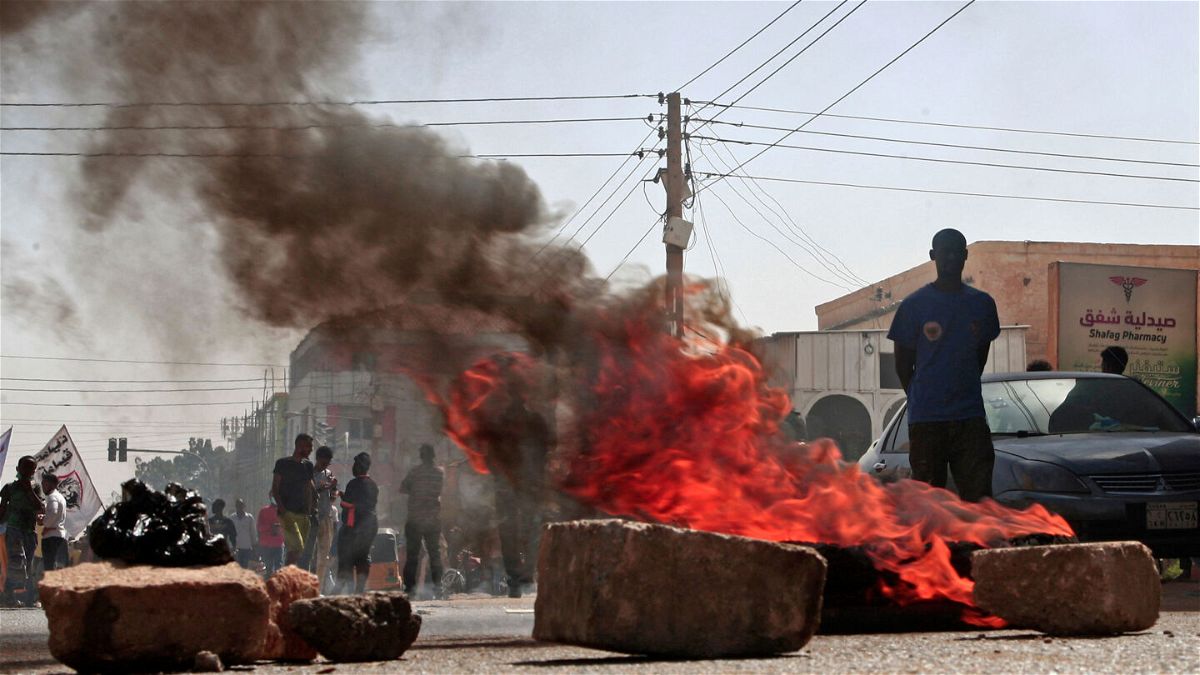Sudanese forces kill at least seven during anti-coup protests, medics say

Demonstrators protest against last year's coup in Khartoum on January 17.
By Kareem Khadder, Hamdi Alkhshali and Tara John, CNN
At least seven protesters were shot dead by Sudanese security forces on Monday during anti-coup rallies in the capital Khartoum, according to the civilian-allied Sudanese Central Doctors Committee (SCDC).
More than 100 people were injured amid the gunfire, SCDC added, which broke out as thousands of protesters marched toward the presidential palace in opposition to last October’s military coup.
In videos shared by Sudanese activists on social media, barrages of tear gas were fired at protesters who were blocking main roads leading to the presidential compound. Sounds believed to be gunfire could also be heard in the videos.
This comes as Sudan’s ruling Sovereign Council — headed by Gen. Abdel Fatah al-Burhan — said Monday it would establish an anti-terrorism force to counter “multiple potential threats,” according to a statement on Facebook.
There have been several mass demonstrations against military rule since the October 25 coup, and at least 71 people been killed by security forces, the SCDC said Monday.
The Forces of Freedom and Change, an alliance of civilian political parties and movements, called for two days of civil disobedience and a general strike in response to Monday’s violence. “Resistance committees have called on people to barricade neighborhoods and main streets to stop movement,” it wrote on Facebook.
Sudan had been ruled by an uneasy alliance between the military and civilian groups since 2019. But in October, the military effectively took control, dissolving the power-sharing Sovereign Council and transitional government, and temporarily detaining Abdalla Hamdok, the prime minister.
Al-Burhan reinstated Hamdok in November as part of a deal between the military and civilian leadership, but Hamdok resigned earlier this January.
Hamdok’s resignation was triggered after the military went back on a “non-interference” agreement struck in November and relaunched the feared national intelligence agency, according to Sudanese political sources speaking to CNN earlier this month.
Previous CNN investigations have implicated the intelligence agency in the deaths of protesters. Its continued influence, sources say, was a “red line” for Hamdok, rendering the relationship with the military untenable.
This week, the US Special Envoy for the Horn of Africa David Satterfield and Assistant Secretary Molly Phee are due to visit Khartoum. They are currently in Saudi Arabia, where they intend to “marshal international support for the UN Integrated Transition Assistance Mission to Sudan (UNITAMS) in its efforts to facilitate a renewed civilian-led transition to democracy,” the State Department wrote in a statement.
Last week, the United Nations began consultations among Sudanese parties and the military to find an end to the crisis.
The-CNN-Wire
™ & © 2022 Cable News Network, Inc., a WarnerMedia Company. All rights reserved.
CNN’s Mohammed Tawfeeq contributed to this report.